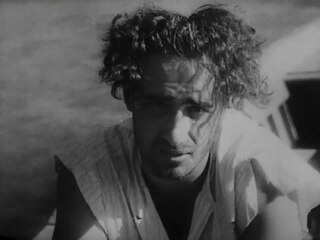Analysis of variance (ANOVA) is a collection of statistical models and their associated estimation procedures used to analyze the differences among means. ANOVA was developed by the statistician Ronald Fisher. ANOVA is based on the law of total variance, where the observed variance in a particular variable is partitioned into components attributable to different sources of variation. In its simplest form, ANOVA provides a statistical test of whether two or more population means are equal, and therefore generalizes the t-test beyond two means. In other words, the ANOVA is used to test the difference between two or more means.

The design of experiments, also known as experiment design or experimental design, is the design of any task that aims to describe and explain the variation of information under conditions that are hypothesized to reflect the variation. The term is generally associated with experiments in which the design introduces conditions that directly affect the variation, but may also refer to the design of quasi-experiments, in which natural conditions that influence the variation are selected for observation.

Statistics is the discipline that concerns the collection, organization, analysis, interpretation, and presentation of data. In applying statistics to a scientific, industrial, or social problem, it is conventional to begin with a statistical population or a statistical model to be studied. Populations can be diverse groups of people or objects such as "all people living in a country" or "every atom composing a crystal". Statistics deals with every aspect of data, including the planning of data collection in terms of the design of surveys and experiments.

The theory of relativity usually encompasses two interrelated physics theories by Albert Einstein; special relativity and general relativity, proposed and published in 1905 and 1915, respectively. Special relativity applies to all physical phenomena in the absence of gravity. General relativity explains the law of gravitation and its relation to the forces of nature. It applies to the cosmological and astrophysical realm, including astronomy.

An experiment is a procedure carried out to support or refute a hypothesis, or determine the efficacy or likelihood of something previously untried. Experiments provide insight into cause-and-effect by demonstrating what outcome occurs when a particular factor is manipulated. Experiments vary greatly in goal and scale but always rely on repeatable procedure and logical analysis of the results. There also exist natural experimental studies.

Experimental archaeology is a field of study which attempts to generate and test archaeological hypotheses, usually by replicating or approximating the feasibility of ancient cultures performing various tasks or feats. It employs a number of methods, techniques, analyses, and approaches, based upon archaeological source material such as ancient structures or artifacts.

Avant-garde music is music that is considered to be at the forefront of innovation in its field, with the term "avant-garde" implying a critique of existing aesthetic conventions, rejection of the status quo in favor of unique or original elements, and the idea of deliberately challenging or alienating audiences. Avant-garde music may be distinguished from experimental music by the way it adopts an extreme position within a certain tradition, whereas experimental music lies outside tradition.

Experimental psychology refers to work done by those who apply experimental methods to psychological study and the underlying processes. Experimental psychologists employ human participants and animal subjects to study a great many topics, including sensation & perception, memory, cognition, learning, motivation, emotion; developmental processes, social psychology, and the neural substrates of all of these.
Experimental economics is the application of experimental methods to study economic questions. Data collected in experiments are used to estimate effect size, test the validity of economic theories, and illuminate market mechanisms. Economic experiments usually use cash to motivate subjects, in order to mimic real-world incentives. Experiments are used to help understand how and why markets and other exchange systems function as they do. Experimental economics have also expanded to understand institutions and the law.

An experimental aircraft is an aircraft intended for testing new aerospace technologies and design concepts.

A test pilot is an aircraft pilot with additional training to fly and evaluate experimental, newly produced and modified aircraft with specific maneuvers, known as flight test techniques.

Experimental film or avant-garde cinema is a mode of filmmaking that rigorously re-evaluates cinematic conventions and explores non-narrative forms or alternatives to traditional narratives or methods of working. Many experimental films, particularly early ones, relate to arts in other disciplines: painting, dance, literature and poetry, or arise from research and development of new technical resources.

A scientific control is an experiment or observation designed to minimize the effects of variables other than the independent variable. This increases the reliability of the results, often through a comparison between control measurements and the other measurements. Scientific controls are a part of the scientific method.
Experimental philosophy is an emerging field of philosophical inquiry that makes use of empirical data—often gathered through surveys which probe the intuitions of ordinary people—in order to inform research on philosophical questions. This use of empirical data is widely seen as opposed to a philosophical methodology that relies mainly on a priori justification, sometimes called "armchair" philosophy, by experimental philosophers. Experimental philosophy initially began by focusing on philosophical questions related to intentional action, the putative conflict between free will and determinism, and causal vs. descriptive theories of linguistic reference. However, experimental philosophy has continued to expand to new areas of research.

Research design refers to the overall strategy utilized to carry out research that defines a succinct and logical plan to tackle established research question(s) through the collection, interpretation, analysis, and discussion of data.

A quasi-experiment is an empirical interventional study used to estimate the causal impact of an intervention on target population without random assignment. Quasi-experimental research shares similarities with the traditional experimental design or randomized controlled trial, but it specifically lacks the element of random assignment to treatment or control. Instead, quasi-experimental designs typically allow the researcher to control the assignment to the treatment condition, but using some criterion other than random assignment.
Experimental music is a general label for any music or music genre that pushes existing boundaries and genre definitions. Experimental compositional practice is defined broadly by exploratory sensibilities radically opposed to, and questioning of, institutionalized compositional, performing, and aesthetic conventions in music. Elements of experimental music include indeterminacy, in which the composer introduces the elements of chance or unpredictability with regard to either the composition or its performance. Artists may approach a hybrid of disparate styles or incorporate unorthodox and unique elements.

The United States Navy Experimental Diving Unit is the primary source of diving and hyperbaric operational guidance for the US Navy. It is located within the Naval Support Activity Panama City in Panama City Beach, Bay County, Florida.
Experimental rock, also called avant-rock, is a subgenre of rock music that pushes the boundaries of common composition and performance technique or which experiments with the basic elements of the genre. Artists aim to liberate and innovate, with some of the genre's distinguishing characteristics being improvisational performances, avant-garde influences, odd instrumentation, opaque lyrics, unorthodox structures and rhythms, and an underlying rejection of commercial aspirations.
Experimental pop is pop music that cannot be categorized within traditional musical boundaries or which attempts to push elements of existing popular forms into new areas. It may incorporate experimental techniques such as musique concrète, aleatoric music, or eclecticism into pop contexts. Often, the compositional process involves the use of electronic production effects to manipulate sounds and arrangements, and the composer may draw the listener's attention specifically with both timbre and tonality, though not always simultaneously.













